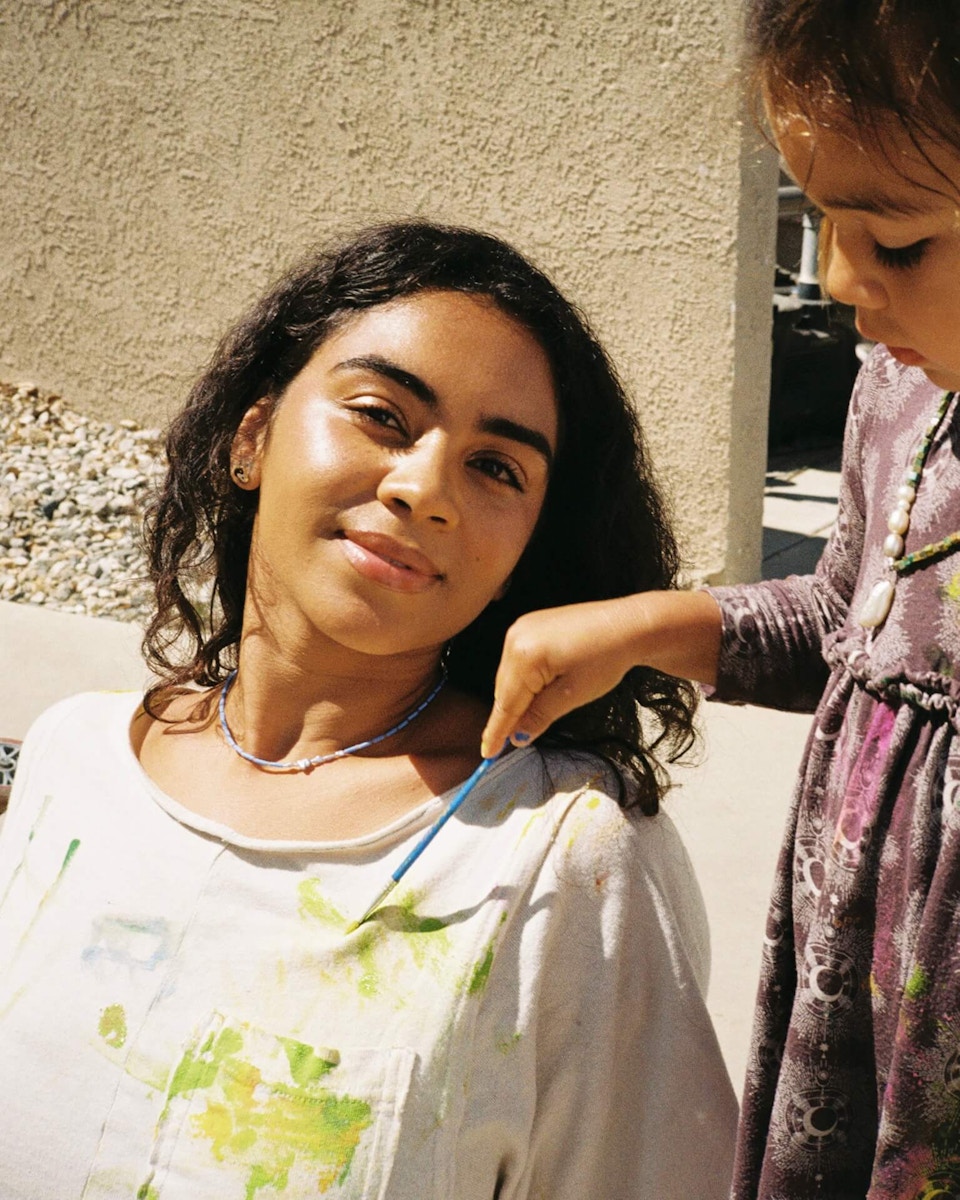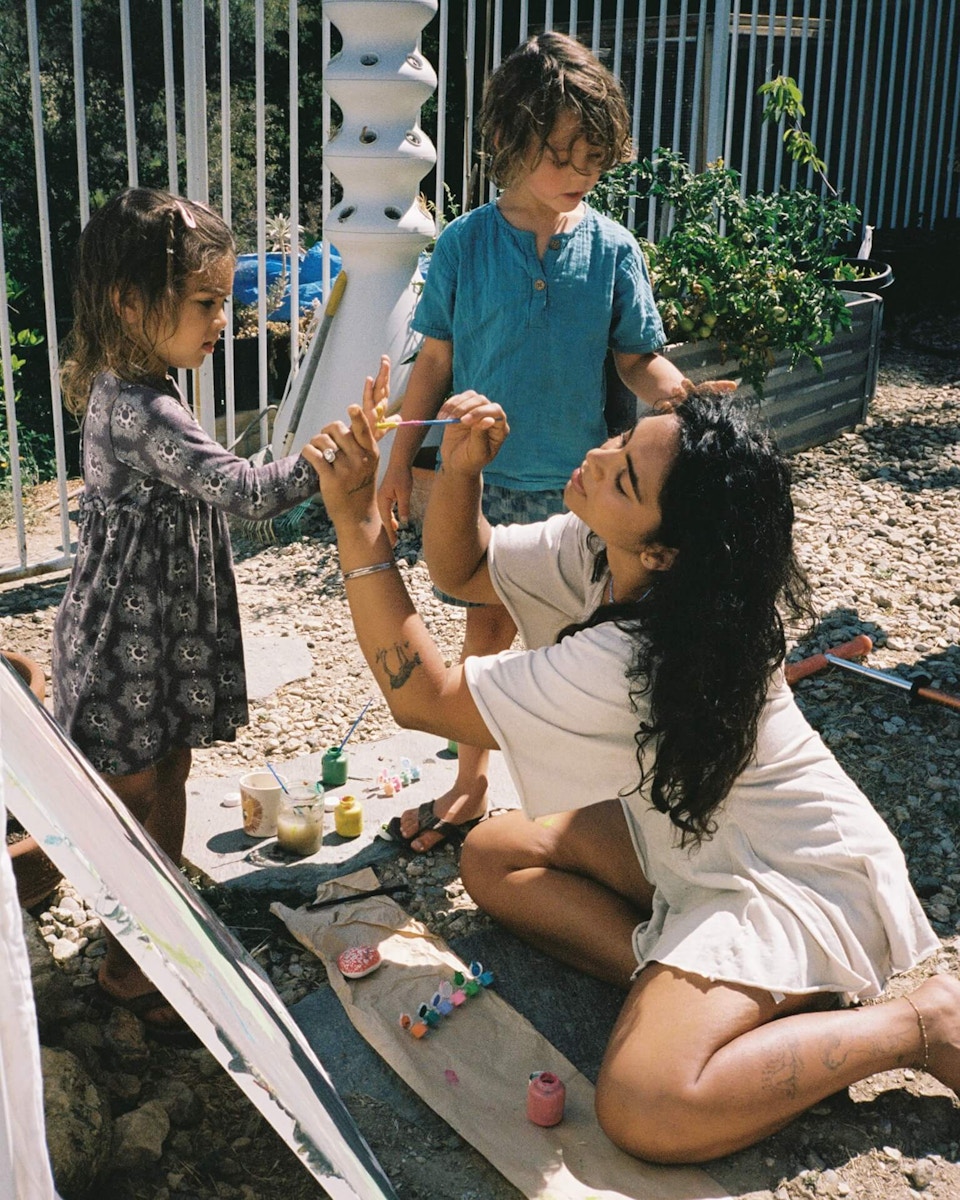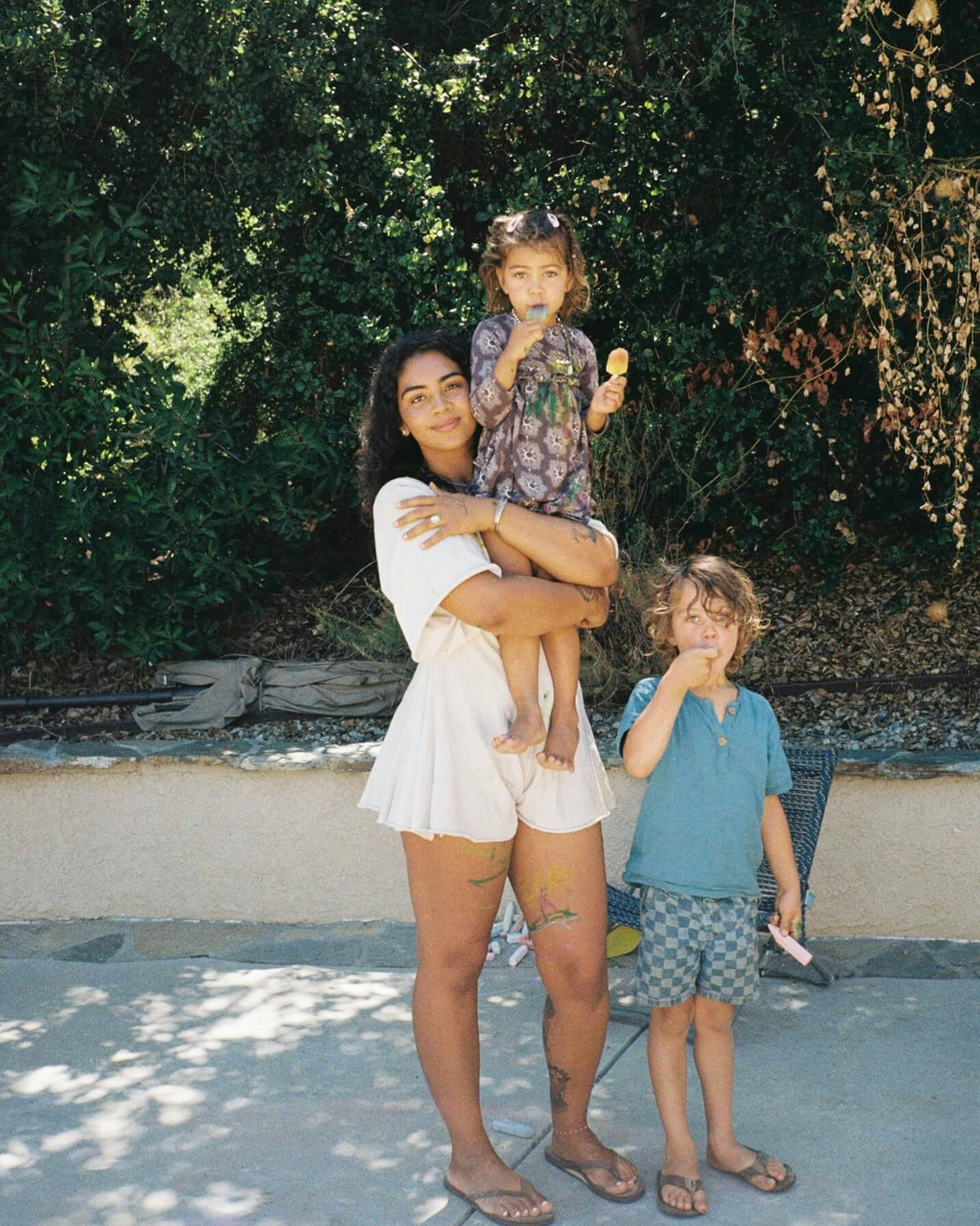
Getting Sticky With Taylor Giavasis
Photos by Guzel Khos, Words by AnaMaria Glavan
Anatomy builds autonomy. It’s not just about teaching kids where their elbow is; it’s about giving them the language to name and own their bodies, to protect themselves, and to express real-life experiences without shame. When kids know their bodies, they own their voices. For Taylor Giavasis, that belief comes from a deeply personal place.
The mother of two had her first child, Malakai, at 21 with her partner, Nash Grier. She’s the founder of The Naked Diaries, a photo and storytelling project that encourages women to embrace their bodies for what they are, sans filters, normalizing things that should already be considered “normal,” like body hair.
Below, Taylor talks about the experiences from her youth: an absent father who is currently in jail and growing up with a white mother whose family was not supportive (and at times openly racist). It’s a conversation about giving her children a safer, slower childhood than the one she knew—without shielding them from the truths that shaped her.
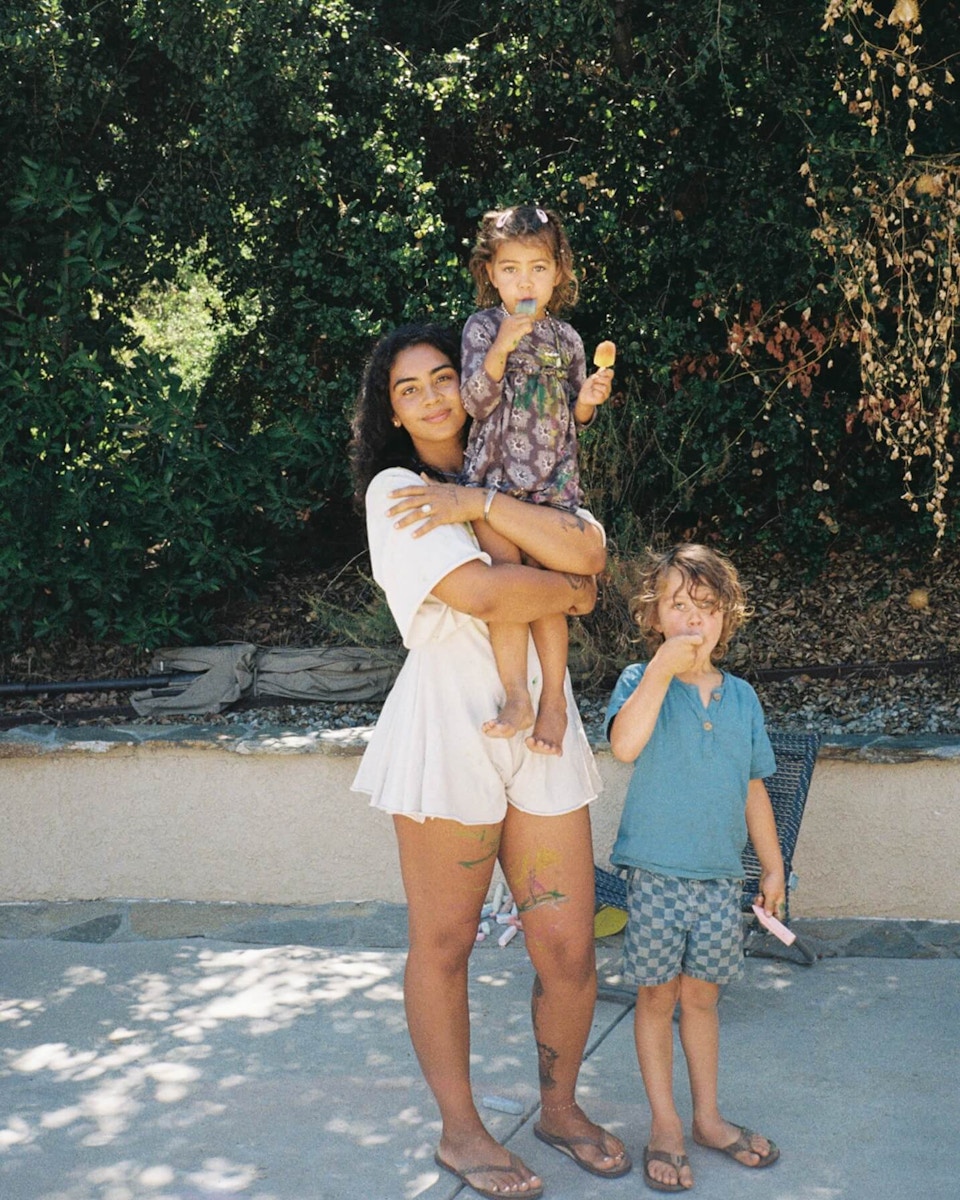
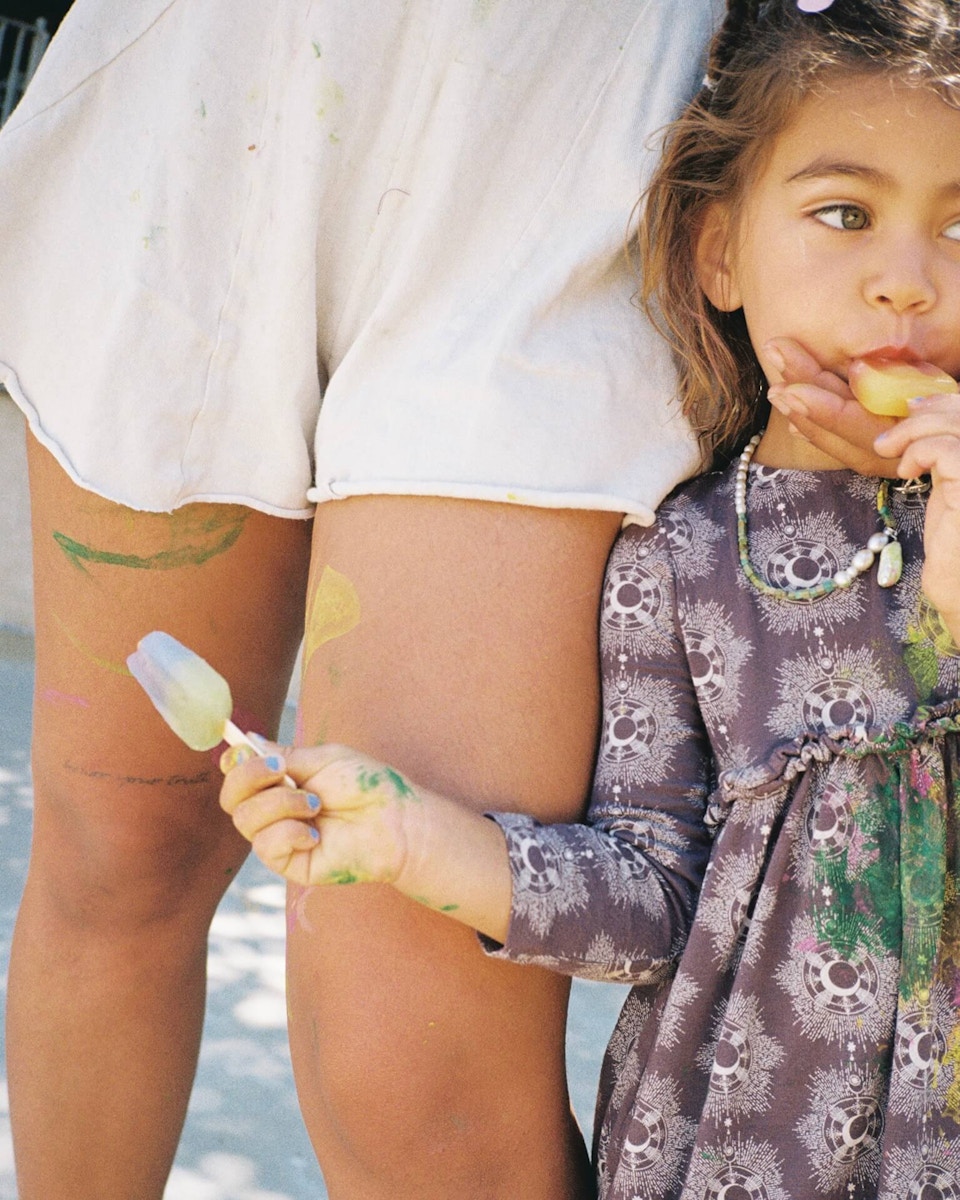
The birth of The Naked Diaries
I’ve always been obsessed with pregnancy. When I was little, I would go up to women and ask if I could rub their bellies. I was always so curious about my own body, too. I would go on the internet, not to look at porn, but to search plastic surgery websites to see what was normal. Things like inverted nipples or having body hair felt so taboo, and I remember thinking I was the only person in the world with body hair. I wanted to create a space where people could relate to being human, especially women, in a world where we’re told so many things about ourselves. I was a teenager when I started The Naked Diaries.
And I thought pregnancy would be this simple, beautiful thing, but it honestly kicked my ass. I was having panic attacks because I’d had a miscarriage a month before getting pregnant with Malakai. The panic attacks were so intense I thought I was going to die. My hormones were all over the place, and it felt like every trauma I’d ever experienced came rushing back at once.
I eventually found a midwife that I connected with instantly. She kept me calm, answered all my questions, and I ended up having a home birth. It was almost 30 hours long, with three hours of pushing before Malakai was born. It was so intense. I don’t like shots or pain, but it was an otherworldly experience. I felt like I left this universe.
Giving birth to Noa was completely different. Only three hours, and I was so aware of everything. I even remember pooping everywhere because I’d taken magnesium the night before for a headache. Nash ended up throwing away the rug afterward. It was chaotic but funny in hindsight.
Breastfeeding was another challenge. I thought it would come naturally but it didn’t. Malakai had a tongue tie, and I have inverted nipples. Thankfully, I found an amazing lactation consultant who helped me, and we breastfed for two and a half years. I had to stop when I was pregnant again because my nipples hurt too much. Now I’m still breastfeeding Noa. I’m ready to stop, but she’s not. I’m hoping to wean her by her third birthday.
Anatomy builds autonomy. Kids deserve to be taught real body part names
When I went to school, I was in situations that made me uncomfortable. Some helped me grow but others were inappropriate. I don’t want my kids to be in those situations. I was molested by my babysitter’s son, and that experience has impacted me deeply. I can’t imagine my children being put in those situations. That’s why I believe it’s so important to teach them about their bodies—using the correct names for body parts like vagina and penis, understanding who can and cannot touch them, and reinforcing these lessons regularly. These may seem like small conversations but they mean so much. I want my kids to have the confidence and ability to speak up and tell someone if anything ever happens to them. I didn’t have that knowledge at a young age, and I truly believe it could have protected me in many situations.
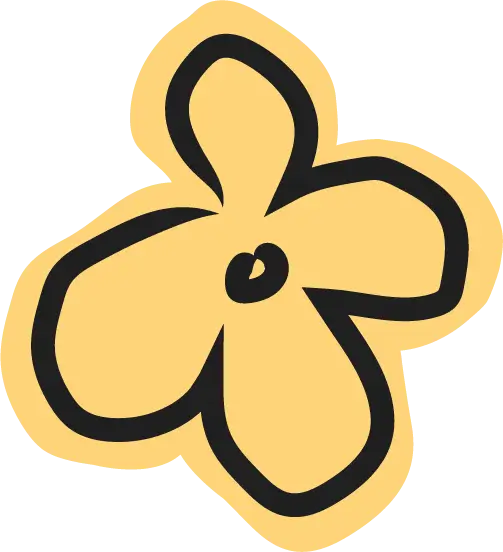
" I want my kids to have the confidence and ability to speak up and tell someone if anything ever happens to them. I didn’t have that knowledge at a young age, and I truly believe it could have protected me in many situations."
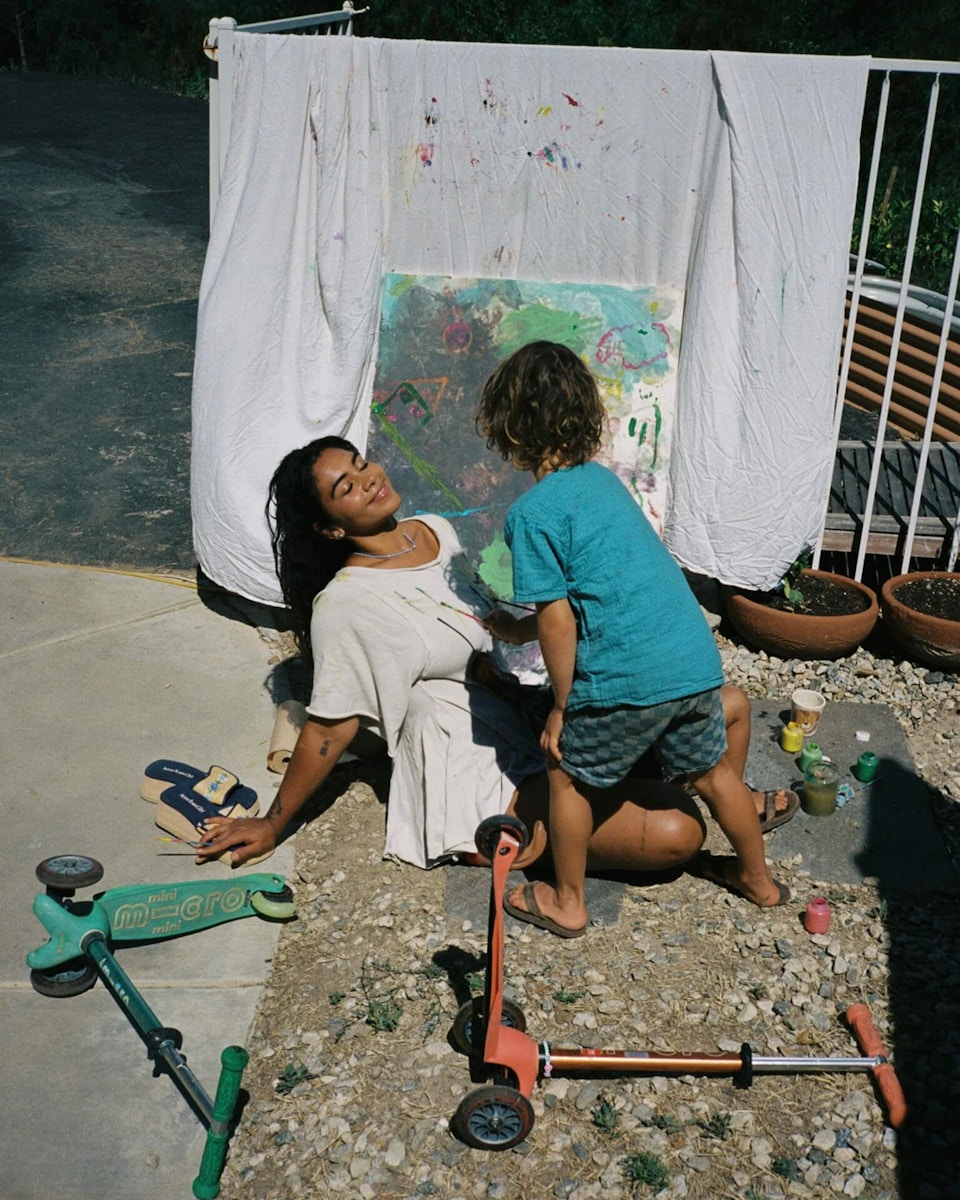
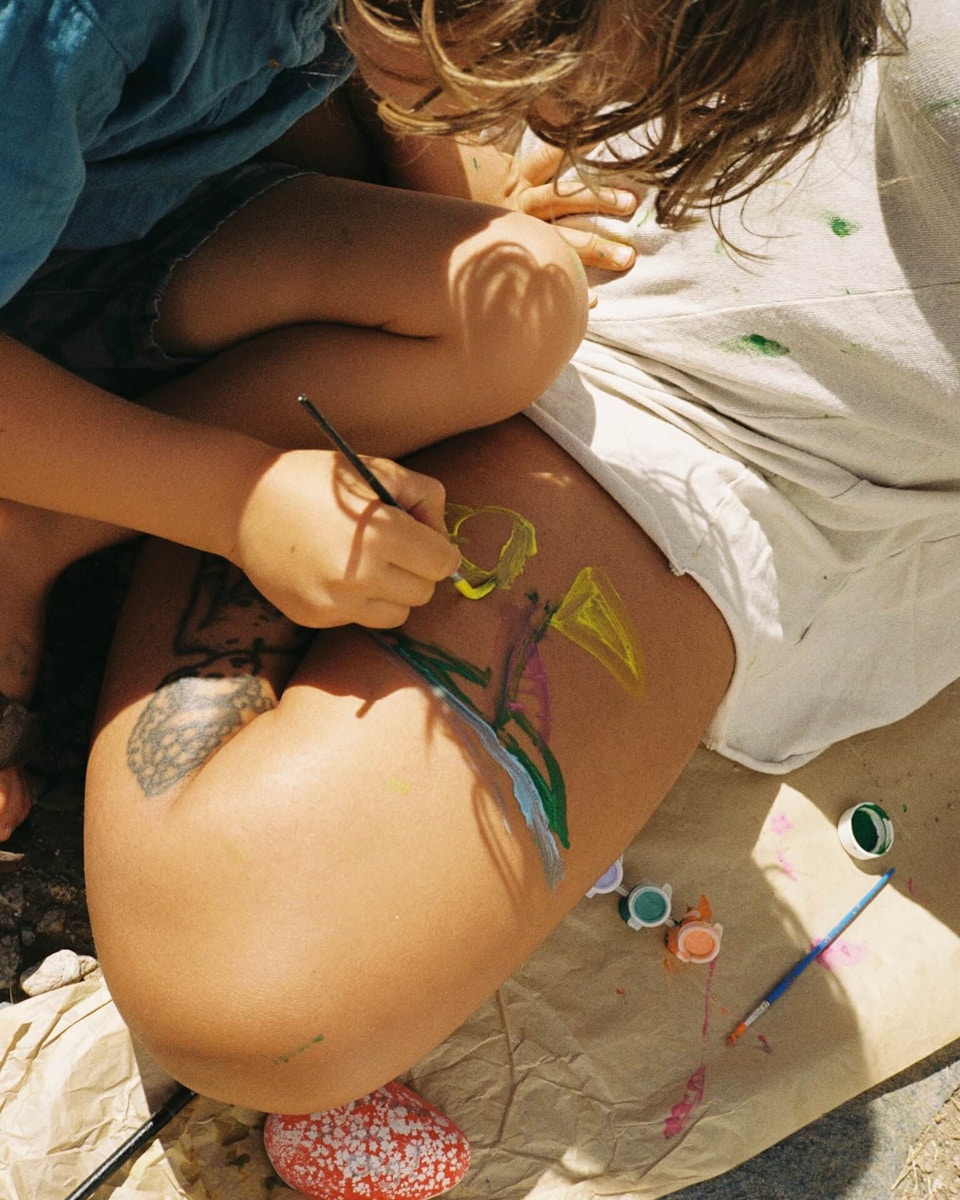
Books—and the wisdom they hold—are our greatest allies
Something I didn’t think about before becoming a mother is raising white children with a white partner as a person of color. Until you’ve experienced certain things firsthand, you can never truly understand them the same way. My husband is open, willing to learn, and committed to advocating for what’s right, and that’s what matters most. My role is to educate our children about the struggles others face, even if they’ll never experience them directly.
For example, Malakai looks completely white, so he’ll be treated as a white man. I want him to be someone who stands up for others and has the knowledge to back it up. He won’t know certain injustices firsthand, but I want him to have the awareness and power to help create change.
Right now, I use books as the main tool to introduce these topics in an age-appropriate way. For example, during Black History Month, I read books about slavery to my kids. I tell them, This is what happened and this is part of your family’s history. As they grow, I’ll continue finding ways to have these conversations in ways they can understand.
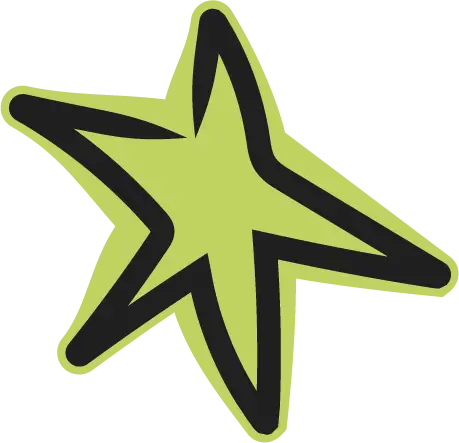
"I use books as the main tool to introduce these topics in an age-appropriate way. For example, during Black History Month, I read books about slavery to my kids. I tell them, This is what happened and this is part of your family’s history. As they grow, I’ll continue finding ways to have these conversations in ways they can understand."

“When Malakai asked where my dad was, I told him he’s in jail”
My own childhood shaped a lot of how I parent. My dad killed someone—his mistress, who was nine months pregnant—and went to prison. I didn’t have a father in my life, and my mom, who was a single parent, fought hard to give me the best she could.
When I was 23, I wanted to know the truth about my dad. My mom had once told me he wasn’t my father, probably because she didn’t want me to associate myself with what he’d done. But I took a 23andMe test, and it showed I had a half-sister. That confirmed he was my dad. I’ve had to peel back layers and come to terms with that, which has been an emotional process.
I don’t have a relationship with my half-sister. I reached out to her once, but I’m still processing my feelings. My dad also has a son with the woman he killed, and he doesn’t have a mother or father. I’d like to connect with them one day but I need to be in the right place emotionally.
When Malakai asked where my dad was, I told him he’s in jail. I didn’t say what for, because it’s not appropriate right now. We’ll get there when the time is right. I’m grateful my children have a good father. That’s something I truly appreciate.
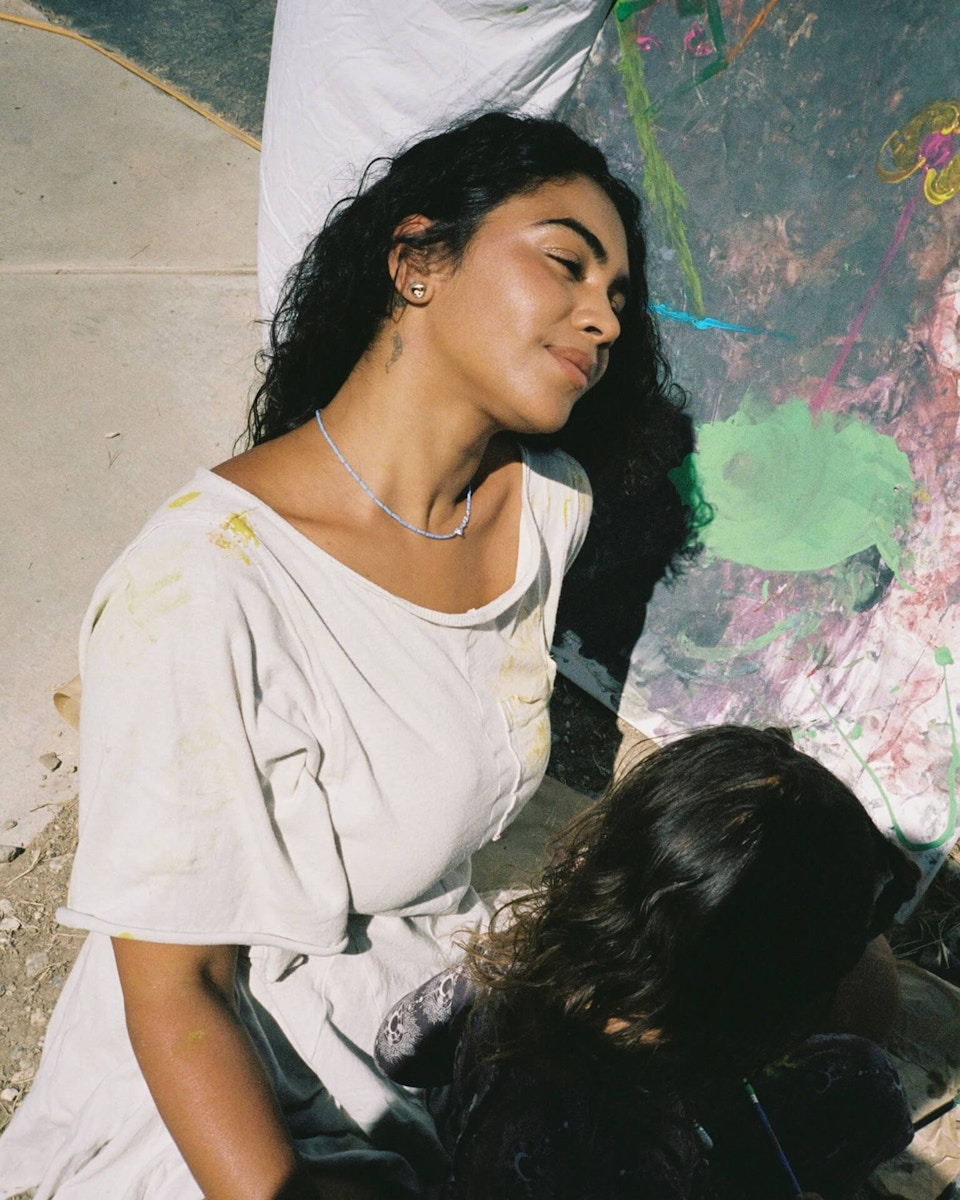
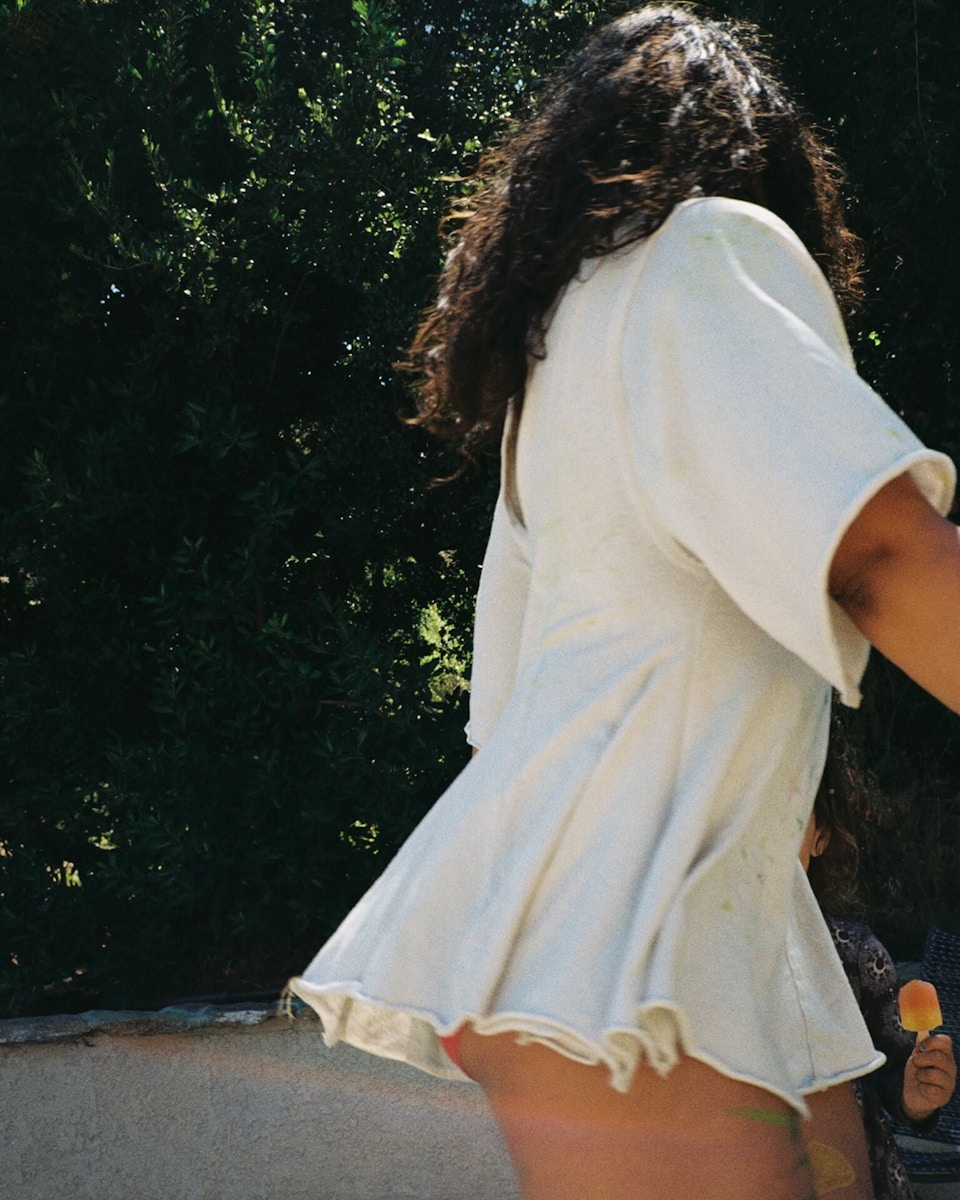
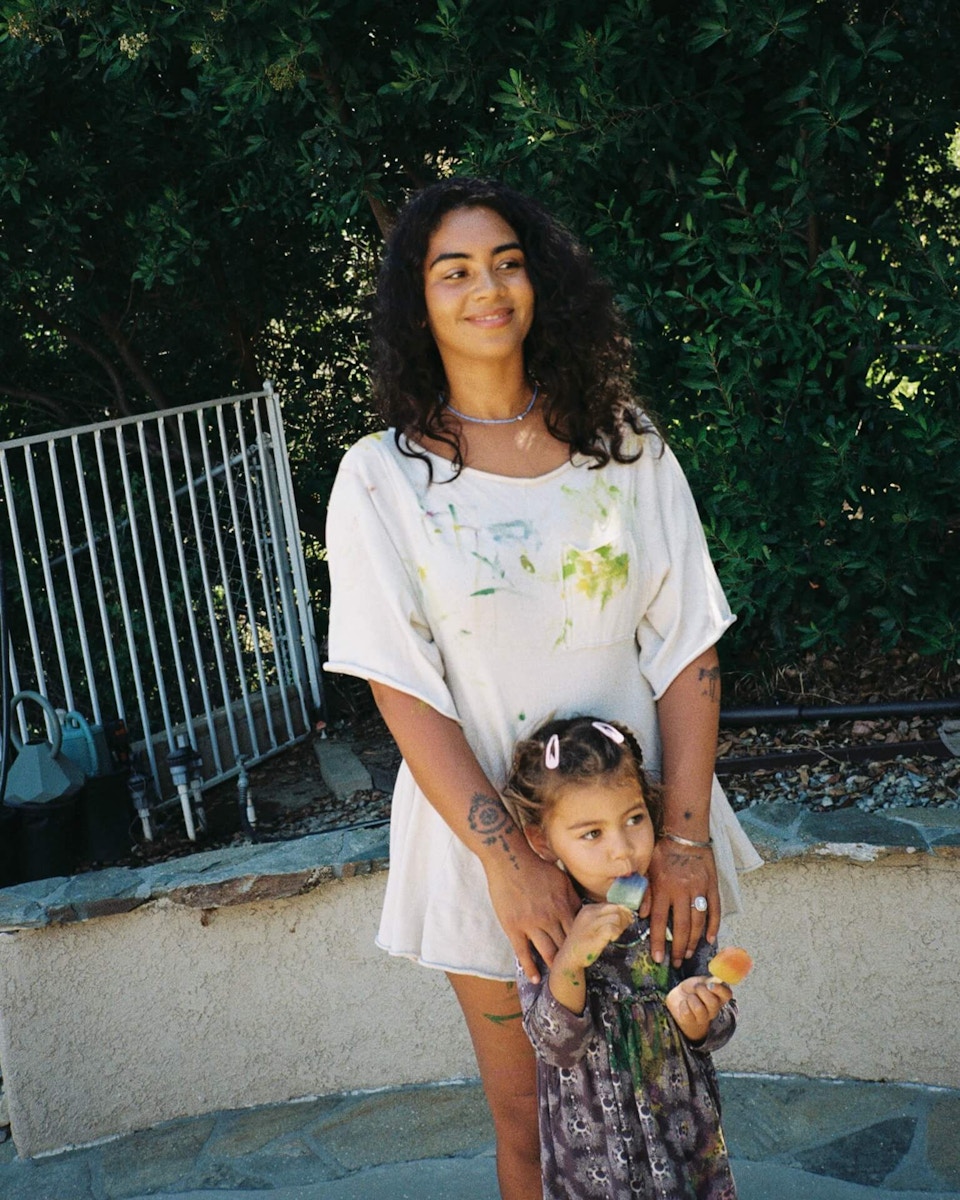
Abandoning tangled roots for a new family tree
My mom is white and my dad is Black. My white side of the family was racist; they told my mom to get an abortion, and my uncle once told me, I’m going to put you in the oven. Now that I’ve grown into who I am, identifying as a mixed Black woman, I yearn for more of that cultural connection. I wish I could explore that side of my history but I don’t think those relatives are the right people to do that with if they raised someone capable of what my father did. I wish my kids could know more about that side of their family, but I couldn’t allow them to be around people like that.
I was crazy as a teenager, completely batshit, but I’m grateful for it. Now I feel like I’ve simmered down. Everything happens for a reason, I guess. It is terrifying to think about raising a kid through those same years. You think about all the dumb, risky things you did, and it’s like—oh my God, I have to guide someone else through that.
My upbringing came with a lot of ups and downs and I had to grow up fast. I think that’s why I want a slower life for my kids. But at the same time, my challenges made me more empathetic and able to navigate life in a different way.
We don’t talk enough about the “after,” cc: pelvic floor therapy
I got pregnant at 21. I didn’t have a timeline for when I wanted to have kids, I just knew I wanted them. I was yearning for a baby and Nash was like, Okay, let’s do it. We had already been dating for about four or five years before we had a baby together. Looking back, I didn’t realize how young I was because, at the time, it was the oldest I’d ever been.
Watching my husband’s brothers and their bond makes me think about having more kids. I always thought I wanted three, but right now, two is good. The toll pregnancy and childbirth take on my body makes me hesitate. I go back and forth. My babies were big—Noa was 10 lbs 13 oz, and Malakai was 10 lbs 4 oz—so I had to learn about pelvic floor therapy and all the recovery that comes with it. There’s so much involved, not just in having children, but in the “after.”
Also, my two kids are so different. One loves the plainest foods, the other has a diverse palate and loves things like kimchi. That’s the thing about children. You can raise them the same way, but their souls are who they are. I didn’t expect my kids to be so opposite in some ways.
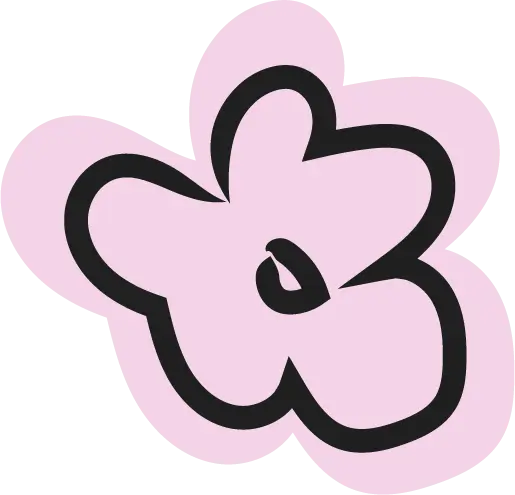
"That’s the thing about children. You can raise them the same way, but their souls are who they are. I didn’t expect my kids to be so opposite in some ways."
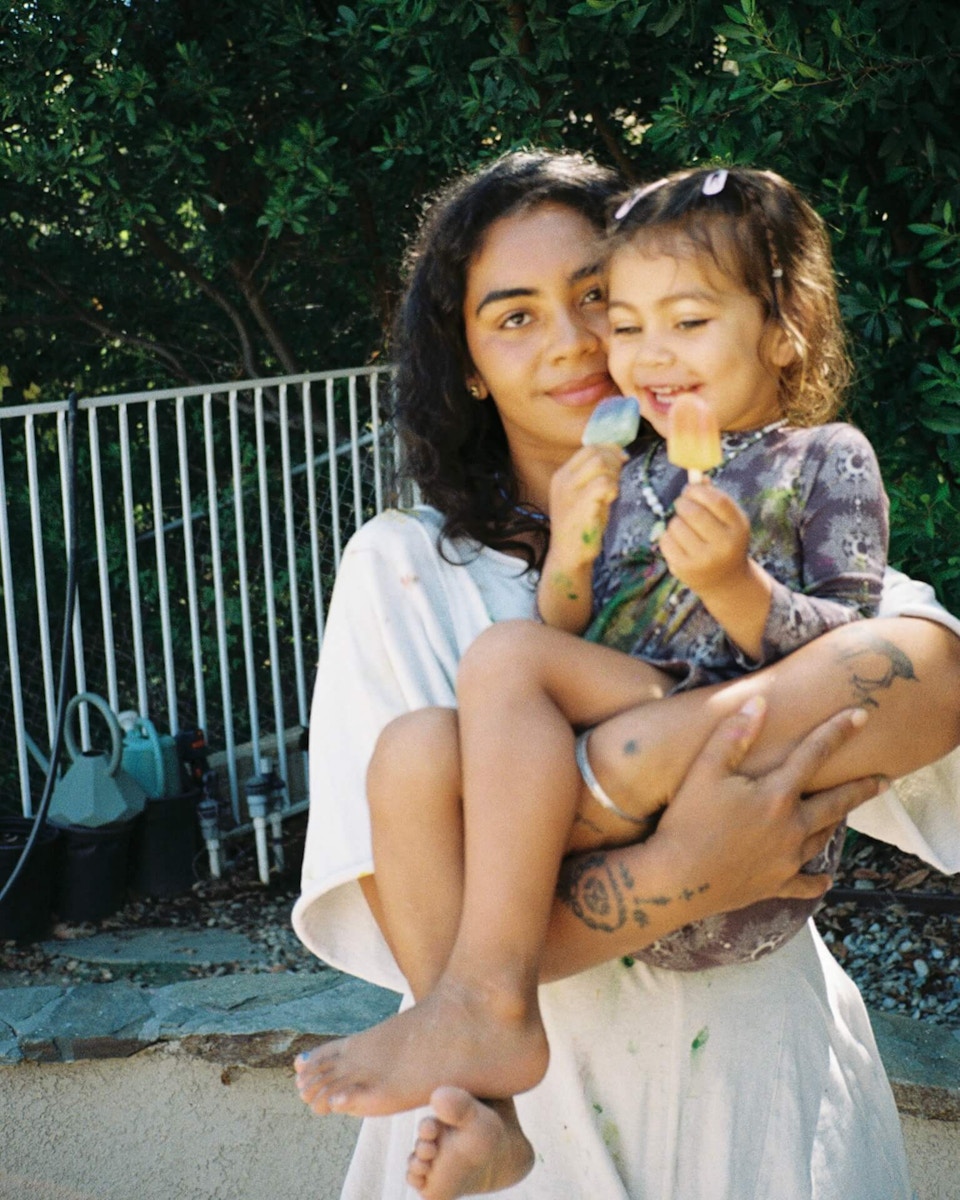
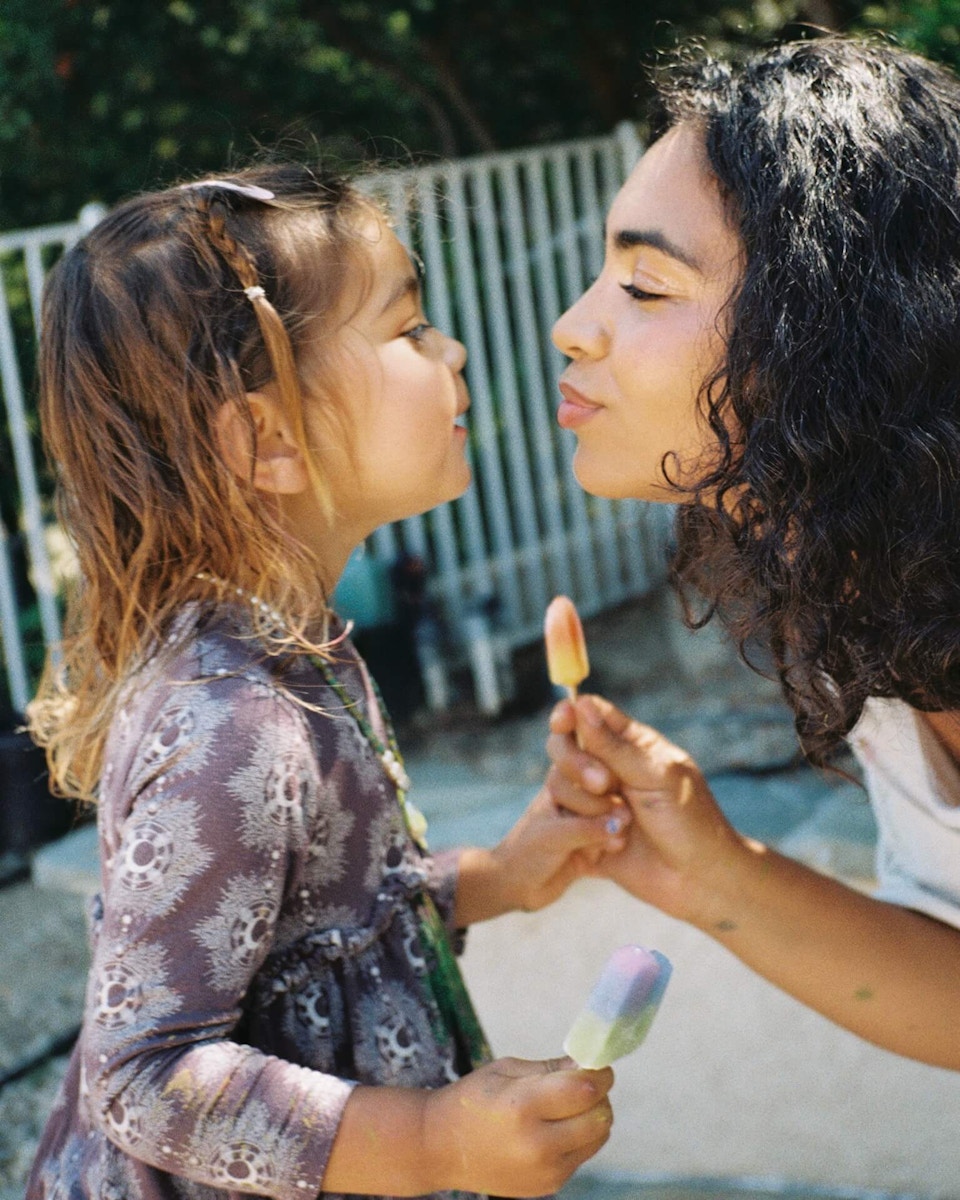
Different pregnancies, different symptoms, different babies
It’s important to know you can get postpartum anxiety and postpartum depression. It’s not good to spiral thinking about everything that could go wrong, but having that awareness matters. Some people don’t know about it, and then when it happens, it’s the biggest shock in the world. That’s why I think things like Spread the Jelly are so amazing—women can go and read real stories.
When I had Malakai, it was blissful. After I gave birth to him, I thought I was starving him—he lost a bunch of weight because I couldn’t breastfeed—and my hormones were crazy. But I was still in a baby bliss. After Noa, I had never experienced anything like it. I was having intrusive thoughts that everybody was going to die. I’d think something bad was going to happen every time I left the house. I wasn’t prepared for that. I expected it to feel like it did with Malakai, but it was completely different. I had a support system telling me I was going to be okay, but imagine those who don’t have that.
Before I had my miscarriage, I was going to school to become a doula. I went to a talk about Black maternal health, and just hearing people’s stories—whether small things or extreme situations—was eye-opening. When I’m done breastfeeding, I definitely want to go back to birth work. I think instead of having another kid, I’ll probably be a doula again. Being an advocate for people who don’t have that possibility is so important to me.
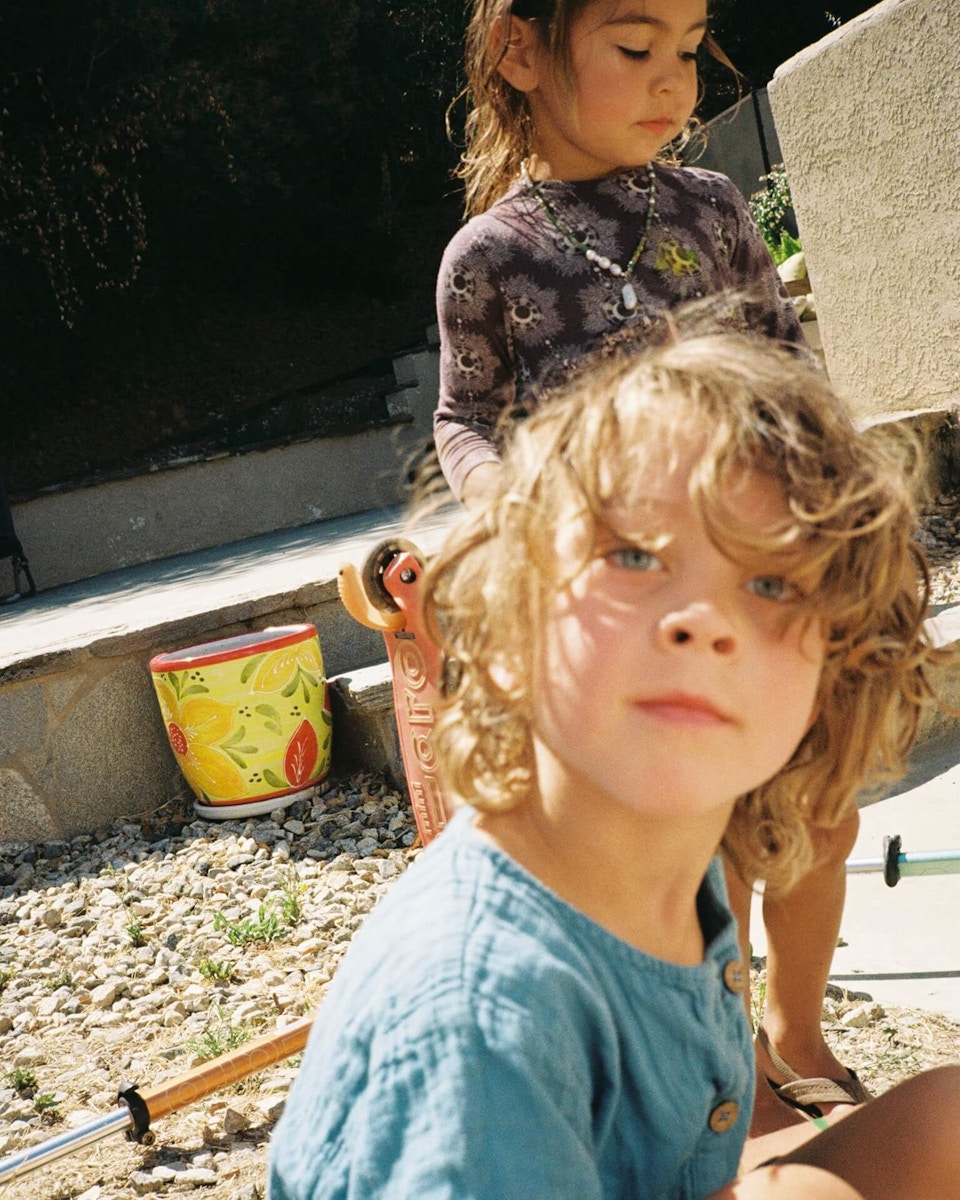
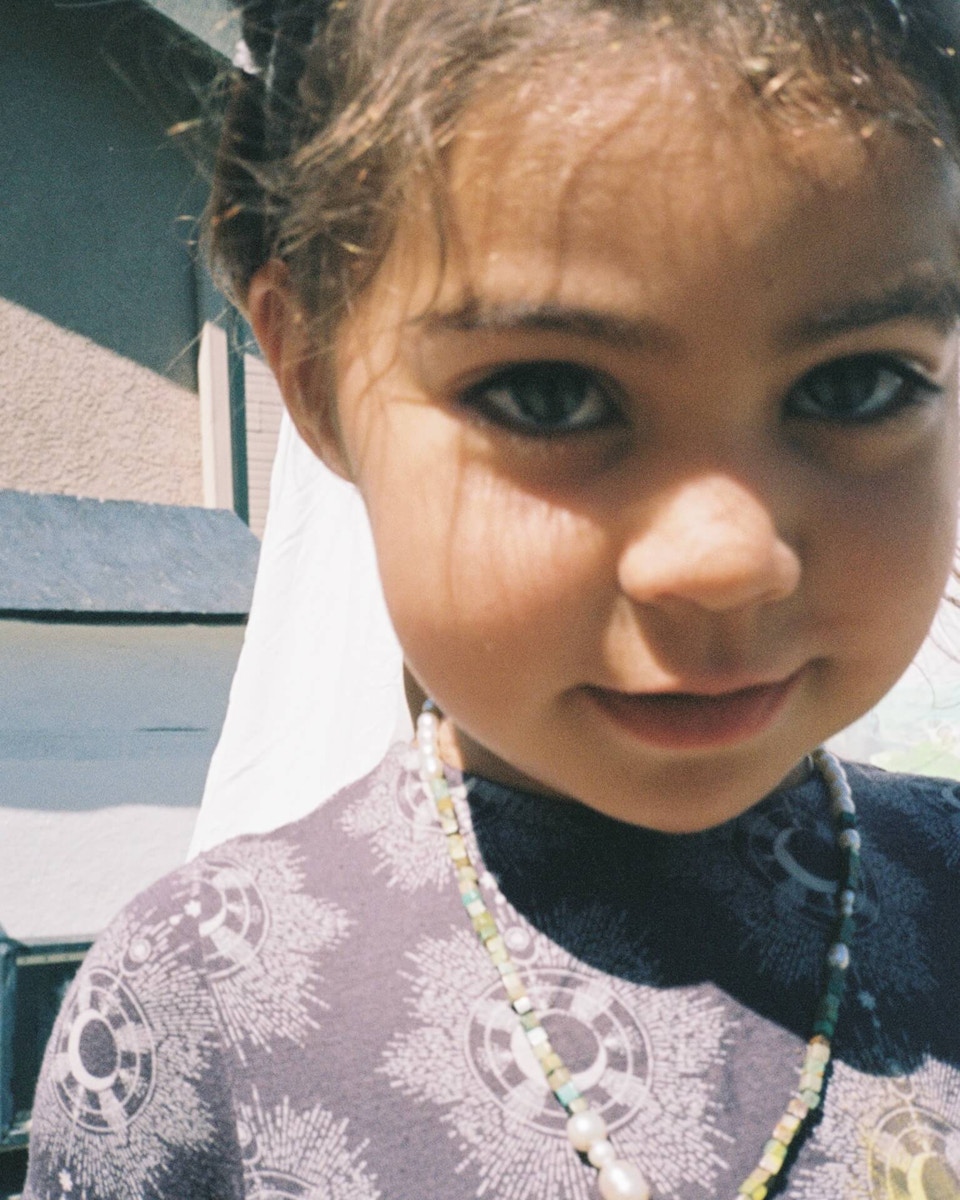
Social media: foe, but also friend
I thought I was going to parent in a very specific way, following the whole gentle parenting approach I saw on social media. You see posts saying, Don’t talk to your kids like this or you’re going to ruin them, and that’s impacted so many mothers. On one hand, social media has taught us so much. On the other hand, it’s made us overthink and has taken some of our intuition away. In the beginning, I would watch all these gentle parenting videos that said, You can’t say this, you can’t say that. Now I’ve evolved to trusting myself. I’m going to give my child boundaries. I’m going to try, and of course sometimes I get overstimulated, but I’ll handle it the best way I can.
On social media, mothers are the most judged people. It’s crazy. You could do anything, good or bad, and someone is going to nitpick you. That’s one of the hard things about having a bigger following. The DMs I get sometimes make me wonder how someone’s brain even got to that place. People put you on a pedestal but you’re just a human being trying your hardest.
But while social media can be a crazy place, I don’t think I would have stayed sane without the women I’ve met through it. All my mom friends, I found online. It really is community, and that’s what we need most. I’ve learned in motherhood how important it is to be around people, and for our kids to be around people of different ages and different walks of life.
I’ve also learned to be more lenient with myself. It’s okay to be human, and it’s okay for my kids to see that. This is life and we’re all going to go through things.
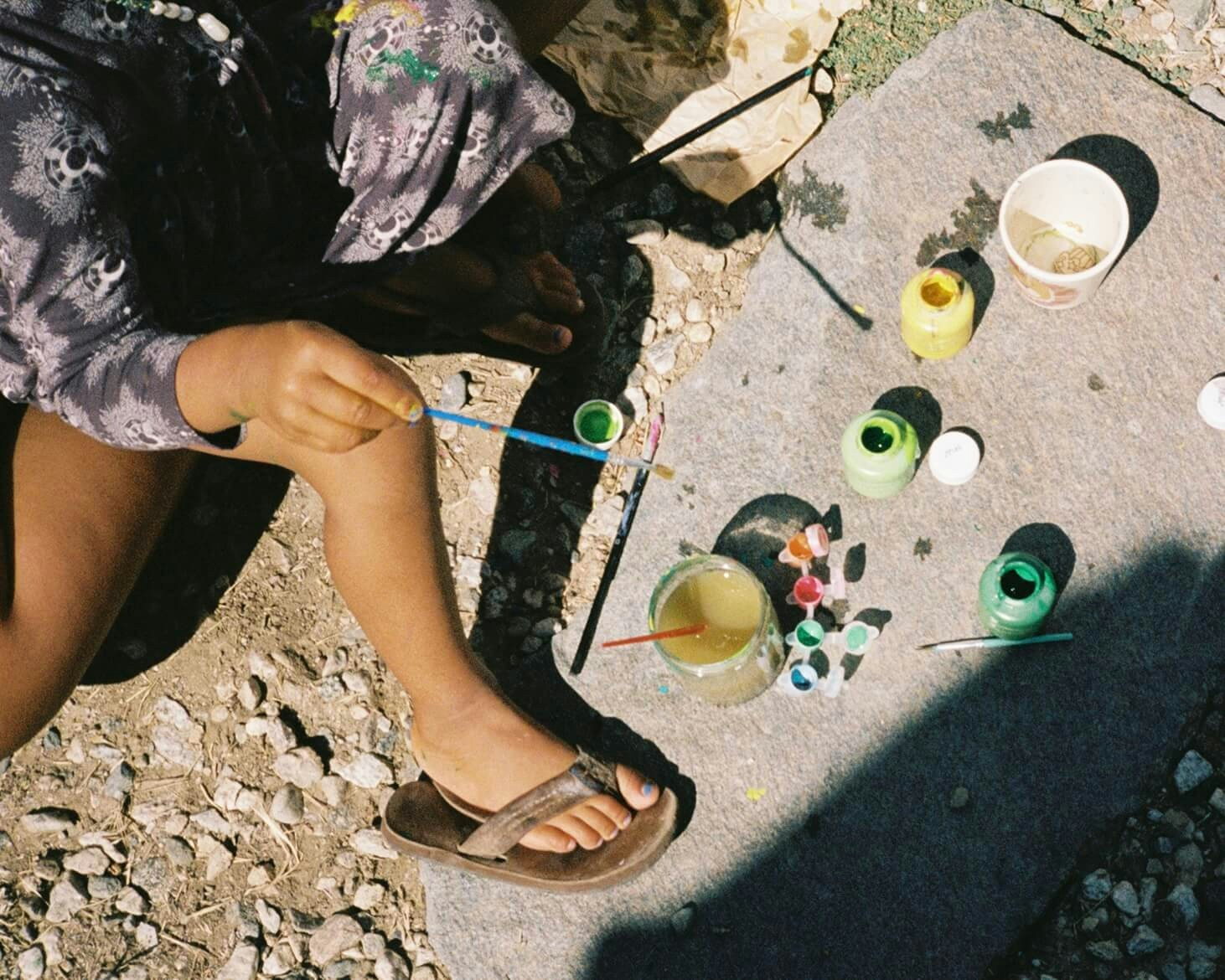
So long to long-winded explanations
Being a mother has made me so in tune with my intuition. I’ll think of something and it happens. Because we’re already so aware of all the things that could happen, we analyze more and can sense things more.
Motherhood has also made me more aware of my people-pleasing tendencies. I used to say sorry all the time because I wanted to make everyone happy, be there for my friends, and do everything at once. But having kids has forced me to step back and think about myself.
I want to give my energy to places and people where I can show up fully. I can’t go everywhere all the time and I don’t want to. I no longer feel bad saying no. Motherhood has made me comfortable with that. Before, I’d feel the need to send a long explanation: I can’t be there because of this, this, and this. Now I just say sorry, but I can’t make it. That’s enough. And the people who matter still love me the same way. That’s one of the biggest ways I’ve grown as a mother—being okay with setting boundaries. When I want to do something now, it’s because I truly enjoy it. Everything I do is more intentional.
Self-care is huge for me. Lately, running has been a big part of my routine. Living in nature means I can step outside and run near my house, which makes me feel strong and confident in my body again. After having children, your body changes—my boobs are not the same, for example—but for me, it’s about feeling strong and good in my own skin.
I’ve always known who I am and the things I love, and I know I’ll return to them. That knowledge gets me through the moments when I miss my old life. When I do those things again, I know it will be even better. Sometimes I want everyone to stop talking to me, but the next moment I think, One day they’ll be grown and gone. It makes me appreciate the moment.
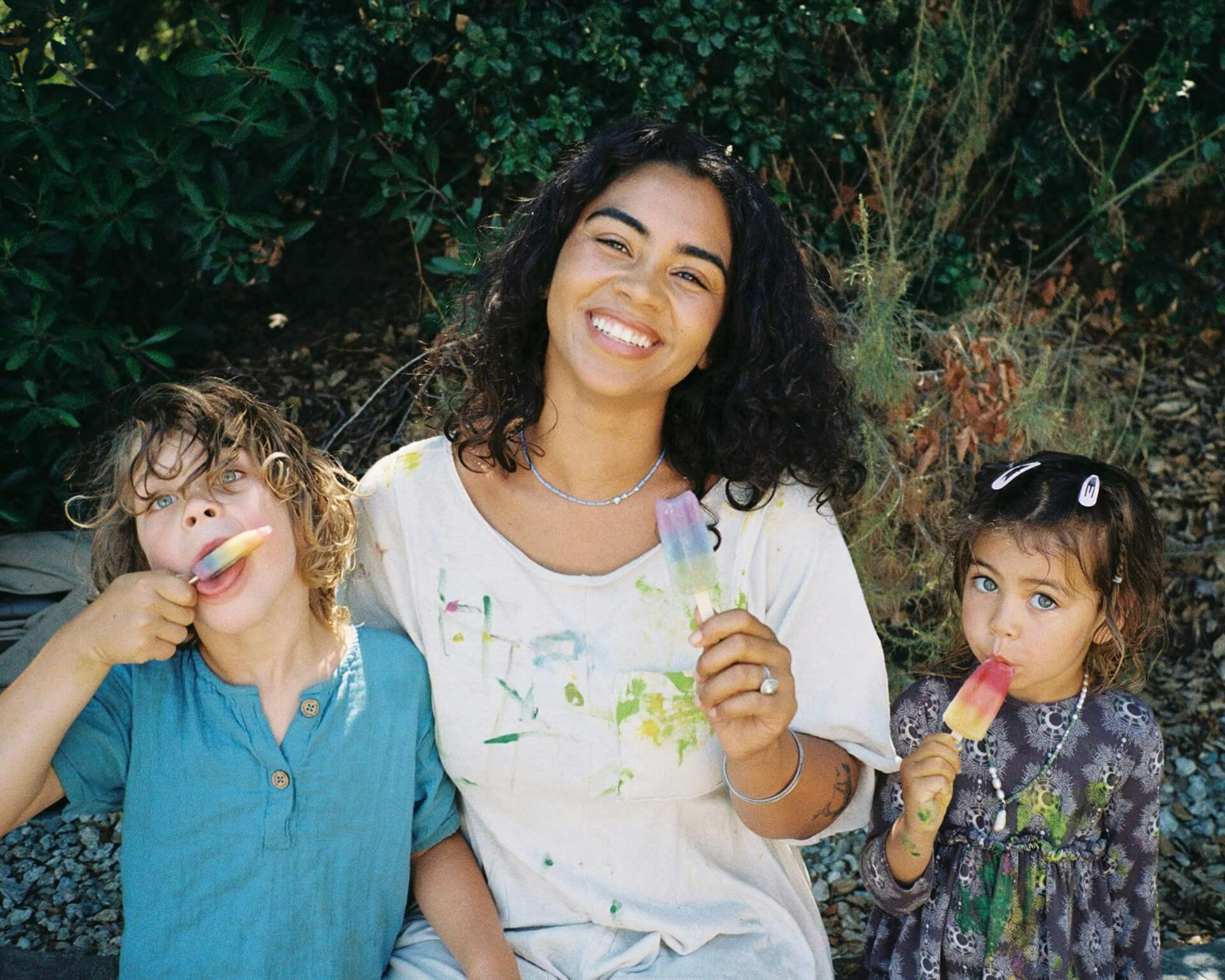
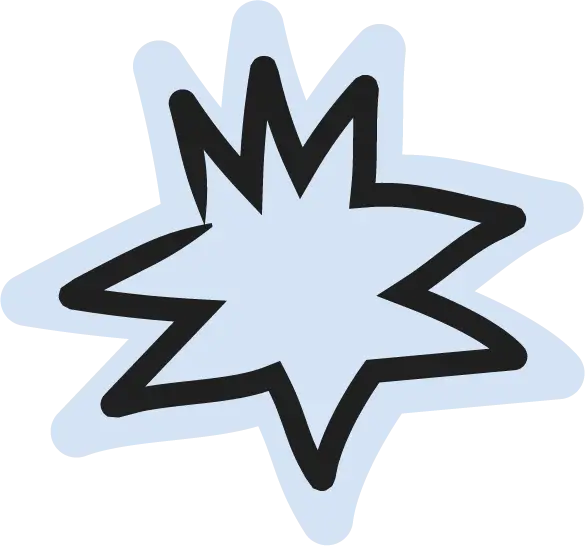
"Being a mother has made me so in tune with my intuition. I’ll think of something and it happens. Because we’re already so aware of all the things that could happen, we analyze more and can sense things more."

